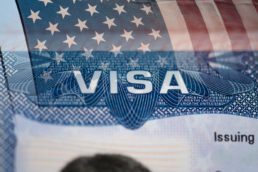The E-2 investor visa was created to allow entrepreneurs from countries which maintain a trade and commerce treaty with the United States to establish new businesses in the U.S. through investment. Though E-2 visas are less often granted for investments in real property, there is a possibility that this type of investment may qualify for an E-2 visa if certain conditions are met. Here, we elaborate on these conditions.
Before qualifying for an E-2 visa using a real property investment, a real property investor must first qualify for the E-2 visa through three requirements. Firstly, the entrepreneur must have invested, or be actively in the process of investing, a substantial amount of capital in a bona fide enterprise in the United States. The investment cannot be a relatively small amount of capital in a marginal enterprise initiated solely for the purpose of earning a living. The business must also be active, meaning that an investment that is earned through minimal activity and with little daily effort or upkeep, such as investments in stocks, would not qualify. Secondly, the investor must be seeking entry into the United States solely to develop and direct the enterprise. And thirdly, the investor must intend to depart from the United States upon the expiration or termination of E-2 status.
Once these general E-2 requirements have been satisfied, a real property investor must apply two additional tests to determine if an investment in real property will qualify for an E-2 visa. These tests are the “active” test and the “marginality” test. In order to satisfy the “active” requirement the investor must be actively involved in the business, directing and developing it on a regular basis. Under the marginality requirement, the investor must also show that his or her investment will benefit the economy of the U.S. That is, it must provide more income than it takes to support the investor and his or her family.
If the scope of your real estate business simply involves owning one rental property or holding title to real property without more, it is unlikely that your activities will qualify for an E-2 investor visa because the investment will not pass the “active” test. It would be deemed to be a passive investment that does not involve “directing” and “developing” the investment. However, if your real property business involves purchasing, selling, renting and renovating real estate, or managing multiple rental properties on a consistent basis, you are more likely to qualify, especially if the business involves ongoing activity during the entire year.
If you have any further questions or concerns about the E-2 visa, please call Berardi Immigration Law to set up a consultation with one of our immigration attorneys today!
Ready to have Berardi on your side?
Whether you’re a business looking to hire or a professional hoping to relocate, immigration law can be complicated. But you don’t have to do it alone. Put our experience to work for you.



